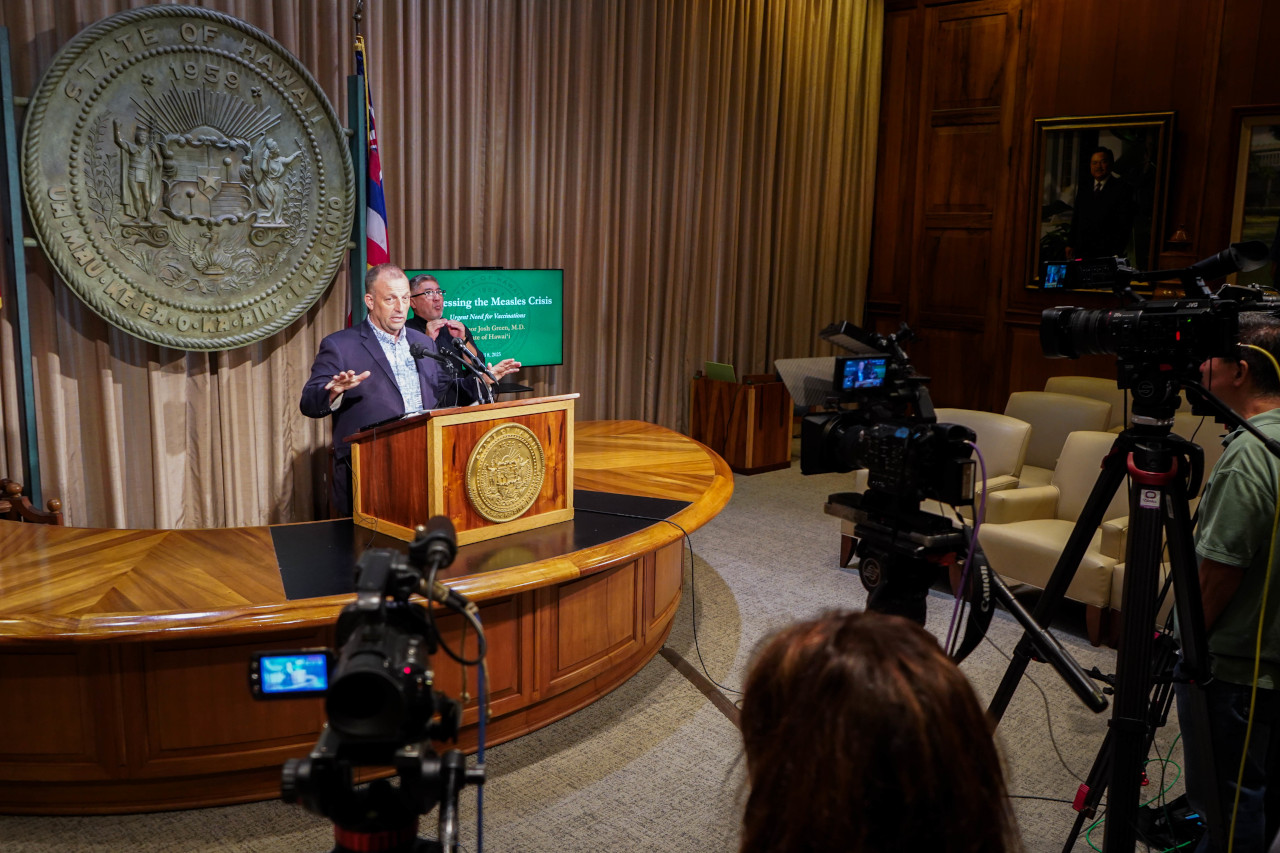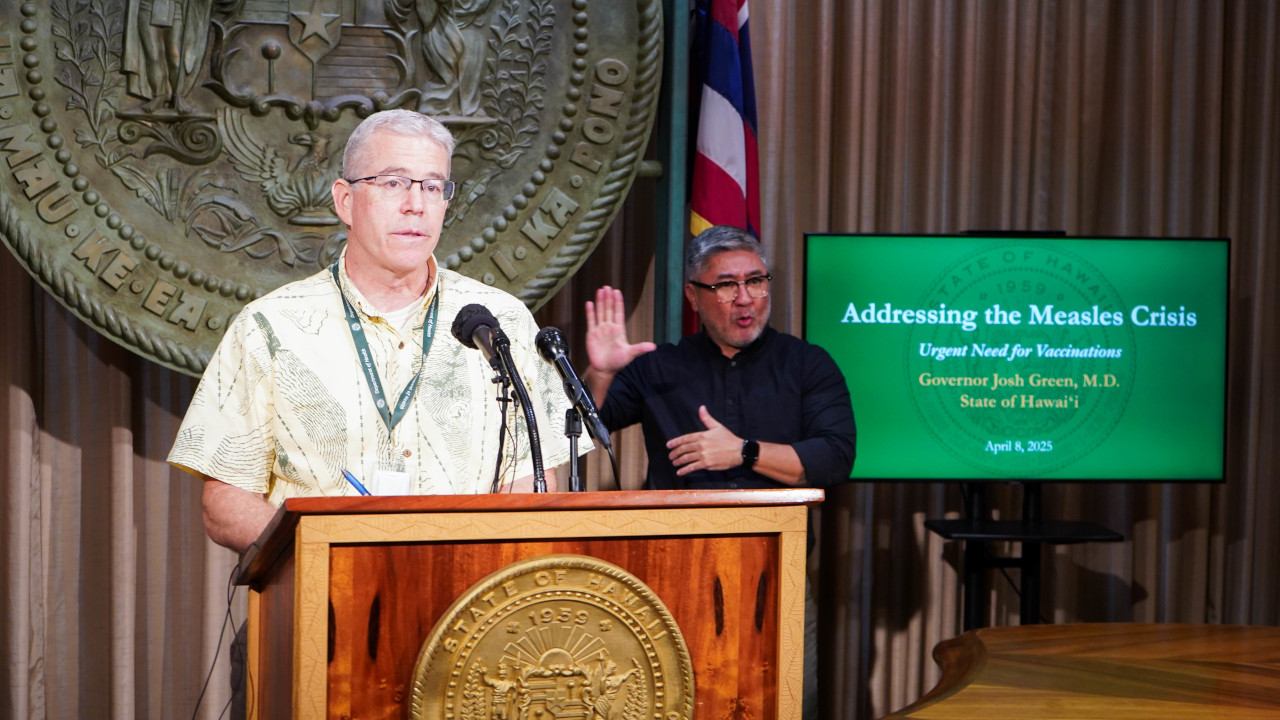(BIVN) – A case of measles has been reported in a child on Oʻahu, and state officials are working to identify those who might have been exposed.
The Hawaiʻi Department of Health (DOH) State Laboratories Division on Monday night confirmed the case of measles in the child, who is under 5 years of age and unvaccinated. The child recently returned from international travel with its parents.
The DOH reports the child “developed a fever, runny nose and cough shortly after returning to Hawaiʻi, sought medical care after breaking out in a rash, and is now recovering at home. A household member with similar symptoms is also being evaluated for possible measles infection.”
The health department says Members of the public may have been exposed to measles if they visited the following locations during the specified times:
- Daniel K. Inouye International Airport (HNL) C gates, customs and baggage claim area on March 30 between 10:50 a.m. and 2 p.m., and
- Daniel K. Inouye International Airport (HNL) Terminal 2 departures, TSA checkpoints and gate area for Delta flight 309 to Atlanta, Georgia, on April 4 between 1 and 7 p.m.
- Mānoa Valley District Park art class on April 1, between 9 to 10 a.m.
- Queen’s Island Urgent Care Kapahulu on April 4, between 8 a.m. to noon
“Flight notifications have been issued for the airlines and airports through which the confirmed and suspected cases traveled,” health officials stated. “The DOH is also reaching out directly to individuals who had known contact with the confirmed or suspected case.”
“There’s no need to panic — but there is a need to act,” said Governor Green, who spoke during a news conference on Tuesday. “Measles isn’t just a rash and a fever — it’s one of the most contagious viruses known. We’ve already seen what happens when vaccination rates drop: more cases, more outbreaks, more lives at risk. The best thing you can do to protect your family, your community and our keiki is to get vaccinated. It’s simple, it’s safe and it saves lives.”
“The last confirmed case occurred in 2023, and additional travel-related cases are not unexpected,” said Dr. Kenneth Fink, Director of the Hawai‘i Department of Health. “Our goal is to prevent cases from becoming outbreaks. The best way to prevent an outbreak is to have at least a 95% community vaccination rate. The MMR vaccine is safe and effective. If you or a family member are not up to date, please talk with your healthcare provider about getting vaccinated against measles to protect your ʻohana and our community.”
From a State of Hawaiʻi news release:
Statewide, Hawai‘i’s MMR vaccination rate stands at 89.8% — below the 95% threshold needed for community (or herd) immunity. Some schools have dangerously low coverage, especially on the Neighbor Islands.
“Hospitals and clinics across Hawai‘i are on high alert,” said Dr. Nadine Tenn Salle, Clinical Chair of Pediatrics at The Queen’s Health Systems. “We’re ready to identify and isolate cases, but our best defense is prevention. That means vaccination — not just for your child, but to protect newborns, the immunocompromised, and others who cannot be vaccinated. This is a community effort, and the medical community is here to help every step of the way.”
The best protection against measles is the MMR (measles, mumps, rubella) vaccine. All children should receive two doses of the MMR vaccine. The first dose is given at age 12-15 months and the second dose at 4-6 years of age. If you are planning travel, consult your healthcare provider to determine whether an additional or earlier dose of MMR is recommended.
All adults born during or after 1957 should also have documentation of at least one MMR vaccination, unless they have had a blood test showing they are immune to measles or have had the disease. Certain adults at higher risk of exposure to measles (e.g., post-secondary school students, international travelers, and healthcare personnel) need a second dose of MMR vaccine, at least four weeks after the first dose.



by Big Island Video News9:54 pm
on at
STORY SUMMARY
HONOLULU - The Hawaiʻi Department of Health is notifying the public of measles exposure locations and dates, and urging residents to make sure they are vaccinated.